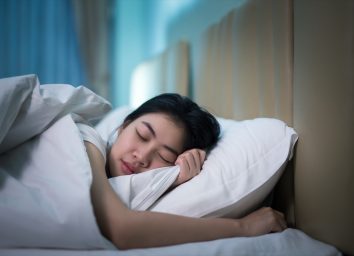9 Eating Habits That Are Hurting Your Sleep, According to Doctors
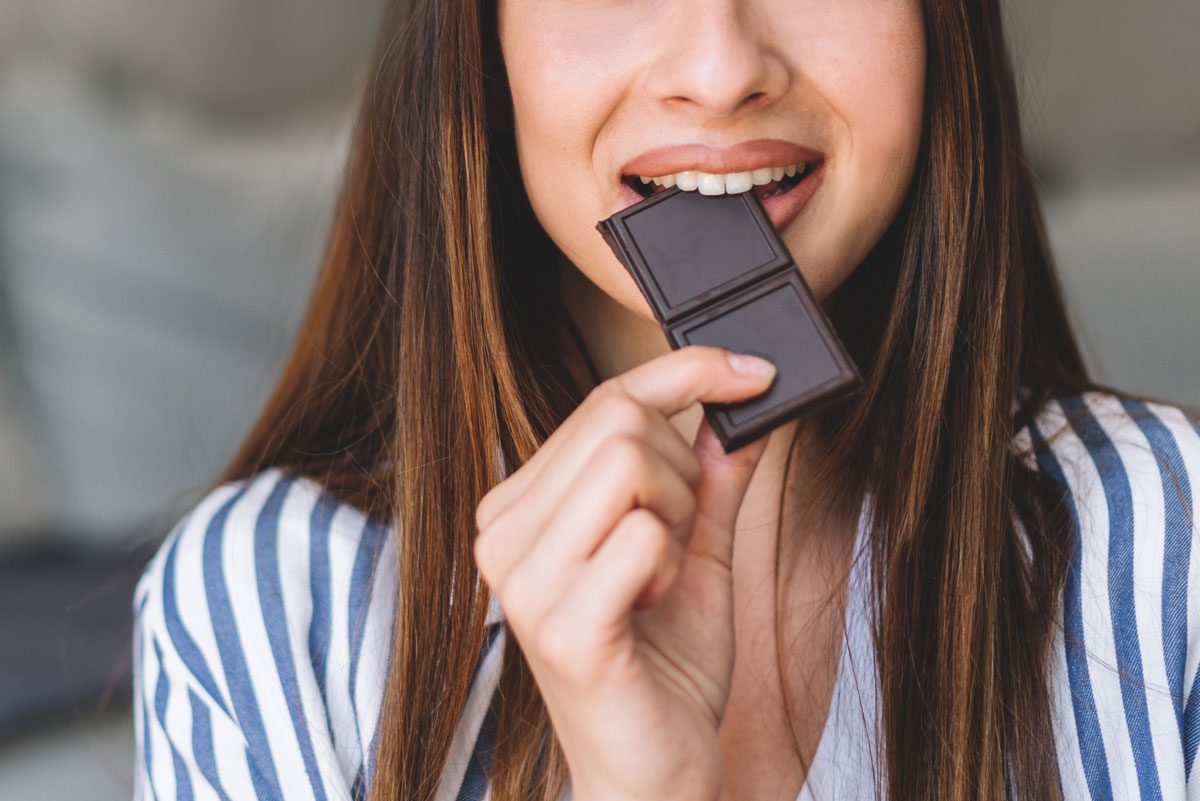
Not only can sleep affect your diet, but the opposite is also true—your diet and eating habits can affect how well you sleep. Studies show that sleep deprivation is linked to consuming more calories the following day, linking a lack of quality sleep to overconsumption and weight gain.
On the other hand, your diet and eating habits play a role in how well you fall asleep and stay asleep as well as how restful your sleep actually was. A review published in Cureus noted that eating high amounts of fat and sugar can result in shorter sleeping durations; lighter, less restorative sleep; and more awakenings throughout the night.
Fatty and sugary foods aren't the only foods and eating patterns that play a role in sleep. We asked doctors about the additional diet habits that may be disrupting your snooze. Read on, and for more on healthy eating, don't miss 26 Things to Do Before Sleep to Lose Weight.
You're eating large meals within 3-4 hours of bedtime
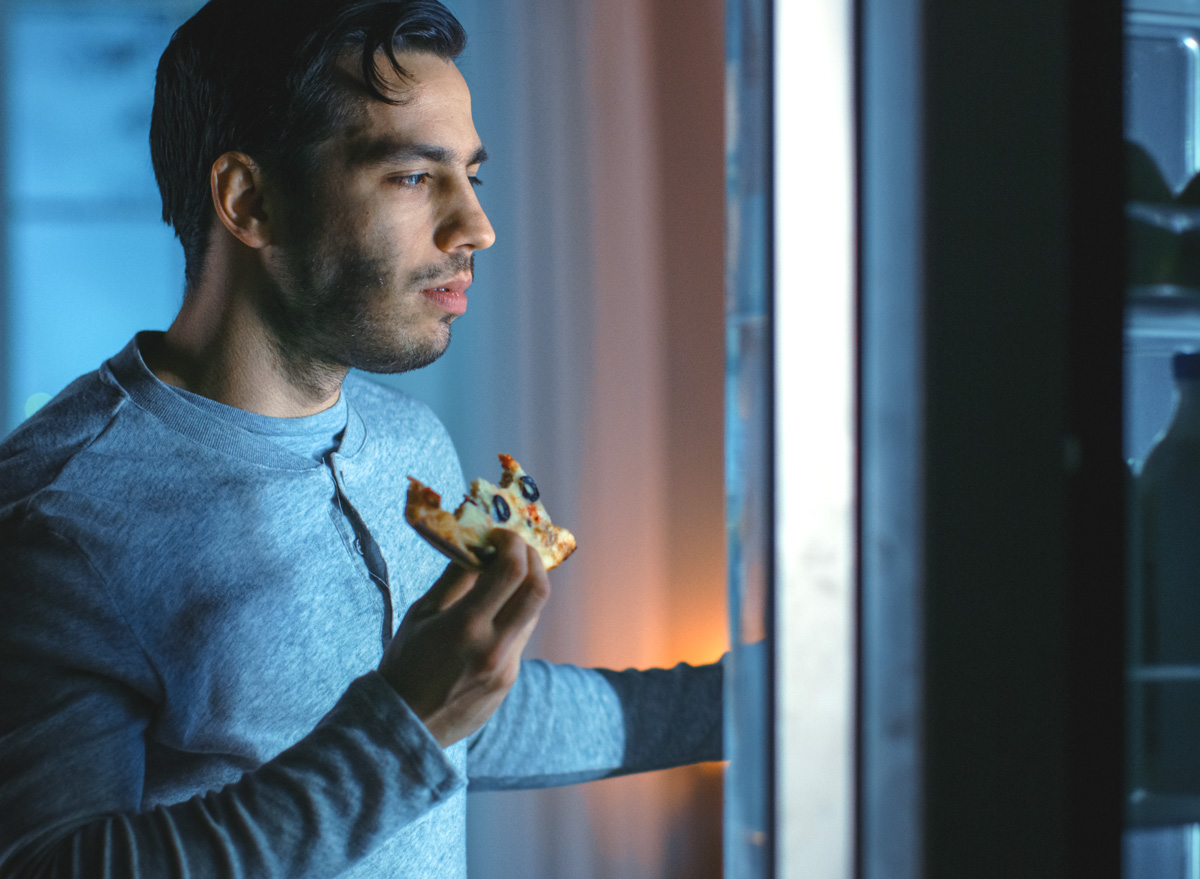
"Eating can increase your core body temperature. Believe it or not, you expend energy eating, though it's minimal. A normal person may take 2-3 hours to digest all of their food. So, grandma's advice to not go to bed with a full stomach is probably correct. It can be very uncomfortable [if you overeat] and you also need your core body temp to be down to sleep. I suggest that you don't eat heavy meals within 3 to 4 hours of going to bed. You can still eat snacks, but a heavy meal will more likely increase your core body temperature," says Alcibiades Rodriguez, MD, assistant professor of Neurology at the NYU Langone Comprehensive Epilepsy Center—Sleep Center. For some bedtime munchies that won't disrupt a good night's sleep, check out The Best Snack to Eat Before Bedtime, According to a Dietitian.
You eat spicy foods around bedtime
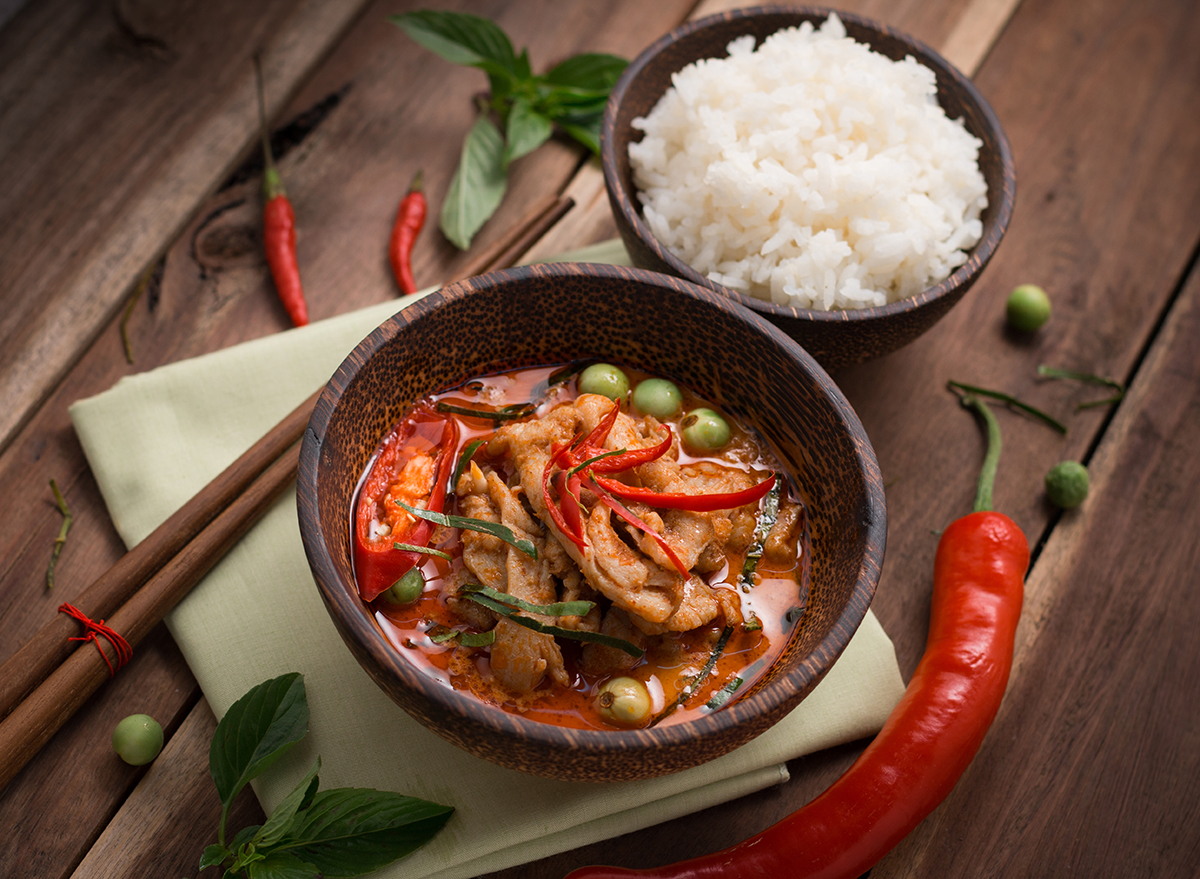
"It turns out that spicy foods can not only wake you up at night, but they can also cause what we call arousals from sleep where your brain wakes up and [you shift from deeper sleep to a lighter sleep]. Sometimes people who consume very spicy foods will have unstable sleep and experience a light sleep with many arousals," says Meir Kryger MD, Professor, Yale School of Medicine.
You drink caffeine after lunch

"I try to avoid all caffeine after lunch. Caffeine is a drug that counteracts a chemical in the brain called Adenosine, which is a compound that accumulates as you become sleepy during the day. In the morning it's ok to take caffeine, at night it's not ok to take it because it may block the effect of Adenosine and make it more difficult to fall asleep," says Dr. Kryger. You won't just have trouble sleeping when you drink too much coffee. Check out these Ugly Side Effects of Drinking Too Much Coffee, According to Science.
You eat chocolate close to bedtime
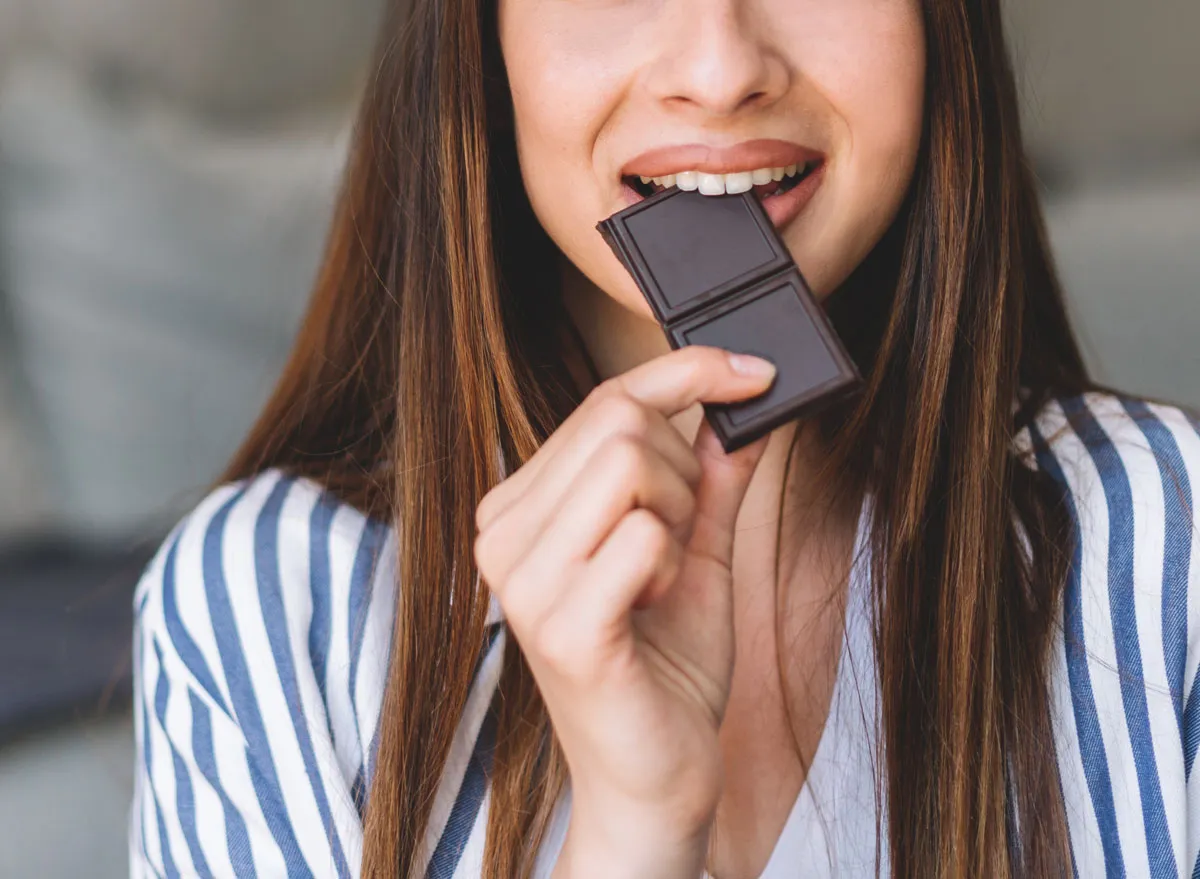
"I will sometimes avoid eating chocolate late at night because there have been occasions where something in chocolate (potentially the caffeine), keeps me awake," says Dr. Kryger. The small amount of caffeine in chocolate comes from the cocoa solids used to make the sweet. If you're an avid chocolate consumer it might be worth a try to cut it out for a small period of time in an effort to identify whether it might be affecting your sleep.
You eat foods that give you heartburn
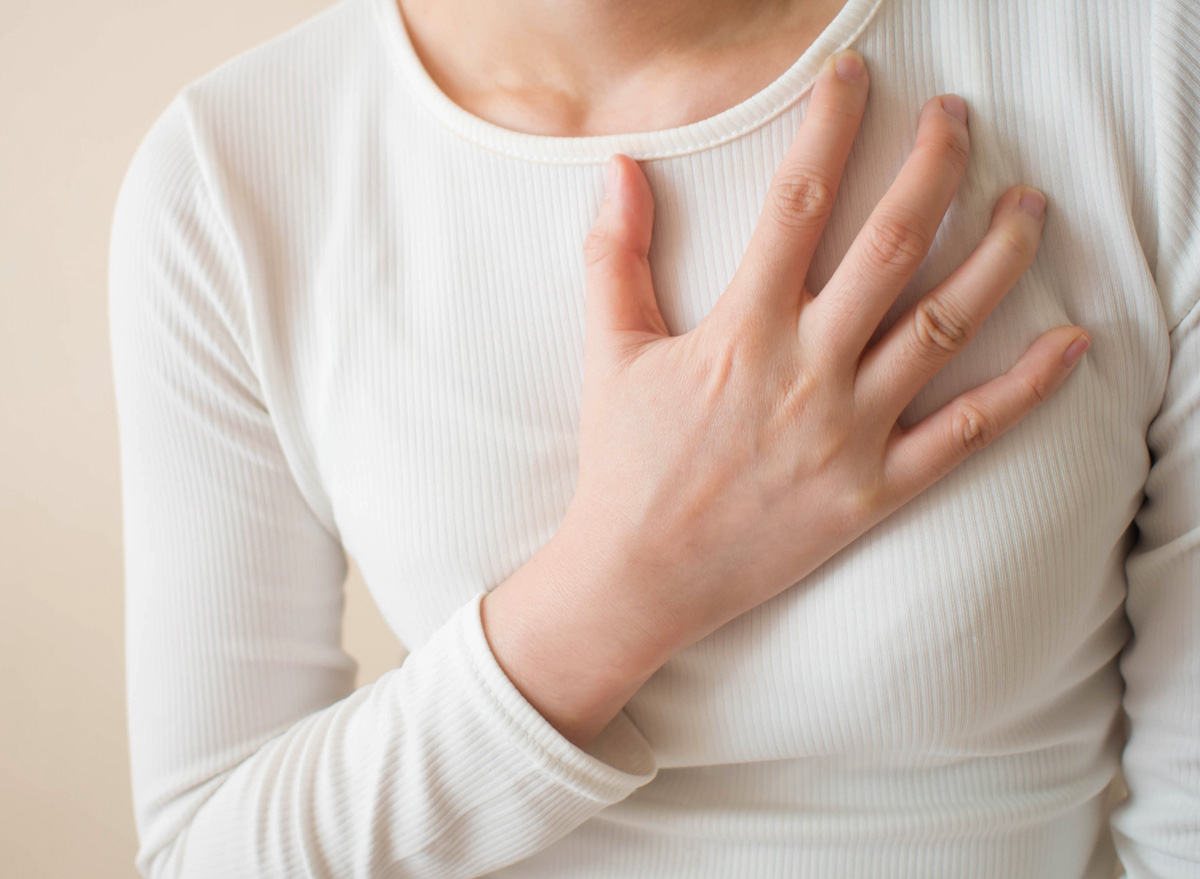
The inability to fall asleep at night could be as simple as eating the wrong food. Certain foods can trigger heartburn in some, which can affect your ability to fall asleep or may cause awakenings in the night. "People should avoid the foods they know that will give them heartburn if they want to avoid sleep disruption," says Dr. Kryger. To identify some culprits, see these 18 Foods Making Your Heartburn Worse.
You're drinking the wrong tea
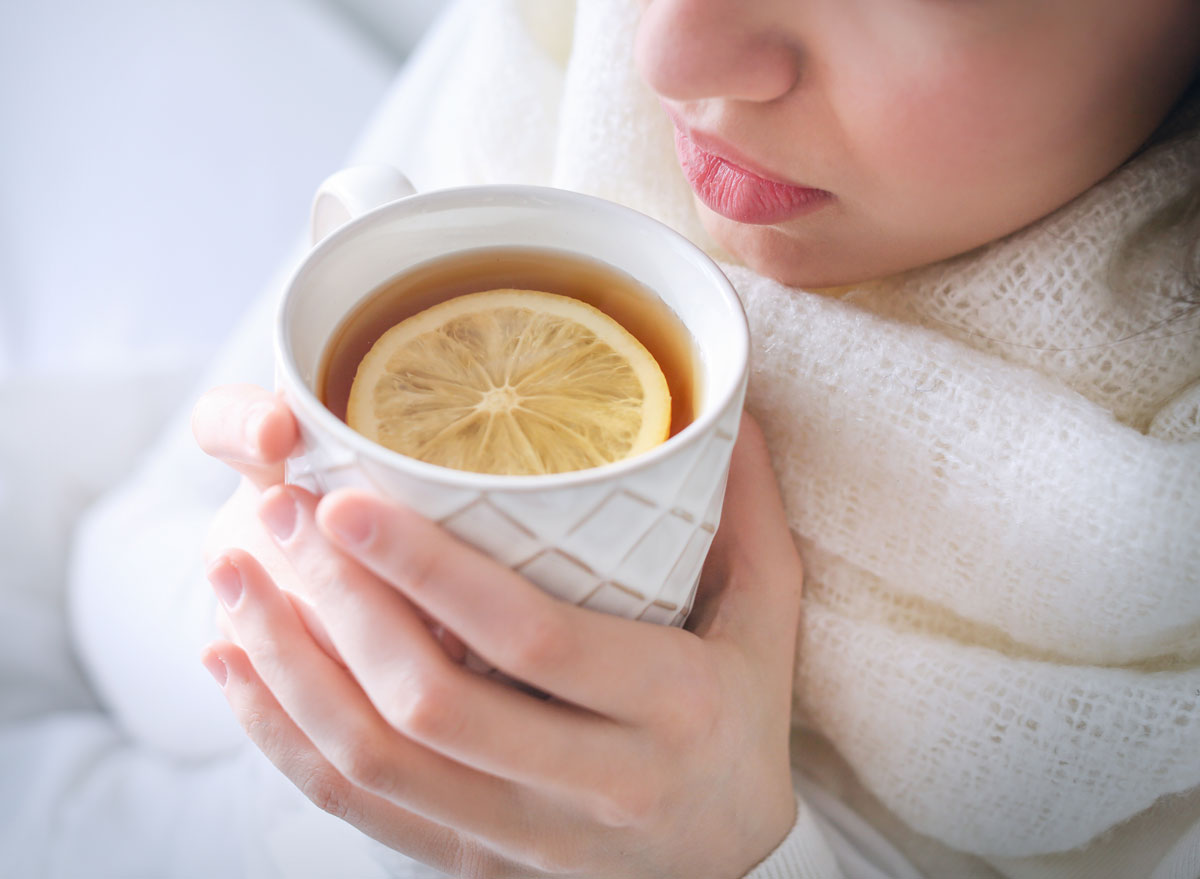
"There aren't many specific foods that will help you sleep, but some foods can help more than others. Certain teas like chamomile have the capacity to calm you down and can have an anti-anxiety effect. They will relax you a little bit and as a result, may help you go to sleep. In order to sleep you need to be relaxed and quiet," says Dr. Rodriguez.
You think milk is a guaranteed sleep aid
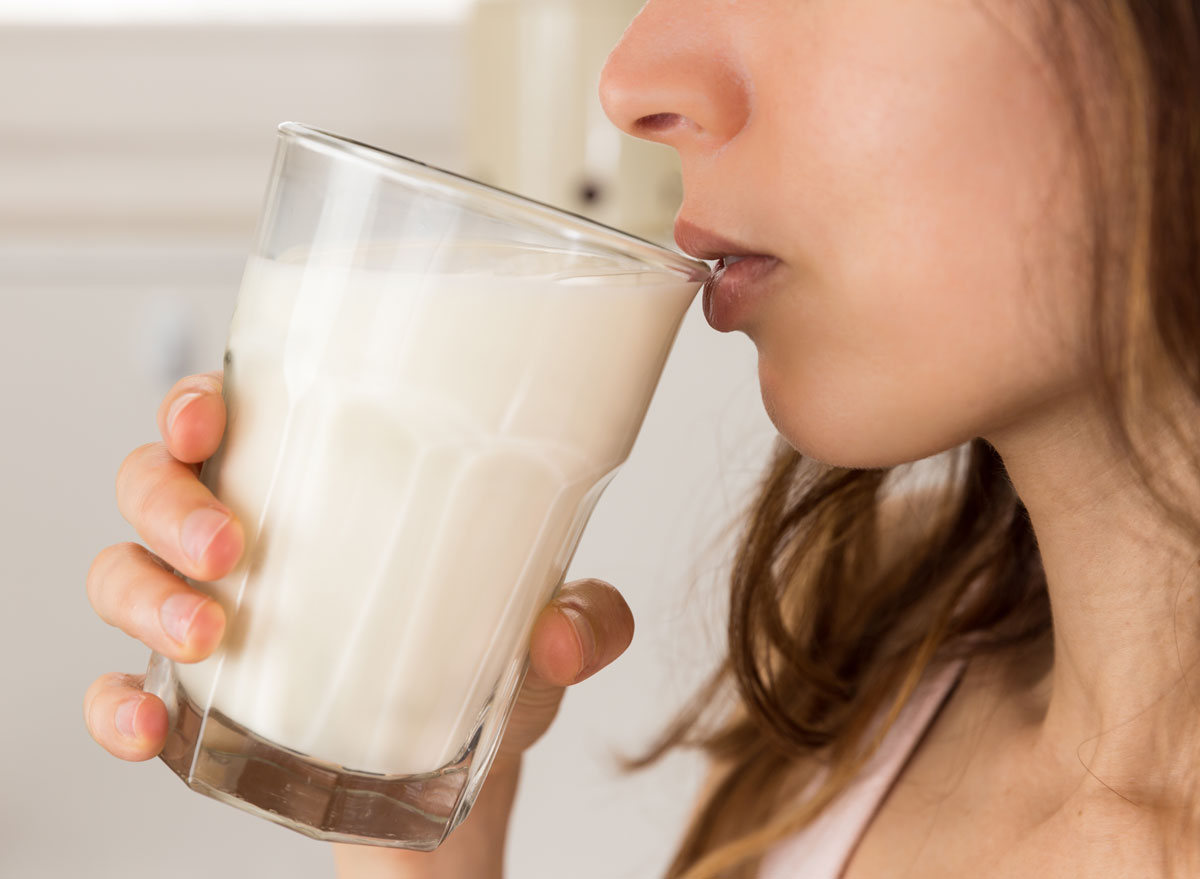
"Some people find that milk helps them, although there isn't much research supporting a [link between drinking milk and falling asleep more easily]. Milk contains an amino acid called Tryptophan, which can trigger melatonin production which is why some people may think a warm glass of milk at night may help them sleep. Personally, I think it just has more of a relaxing effect for some people, maybe invoking childhood memories of milk and cookies," says Dr. Rodriguez. If drinking warm milk relaxes you then by all means have a glass, but don't count on it to knock you out at night.
You use booze to help fall asleep
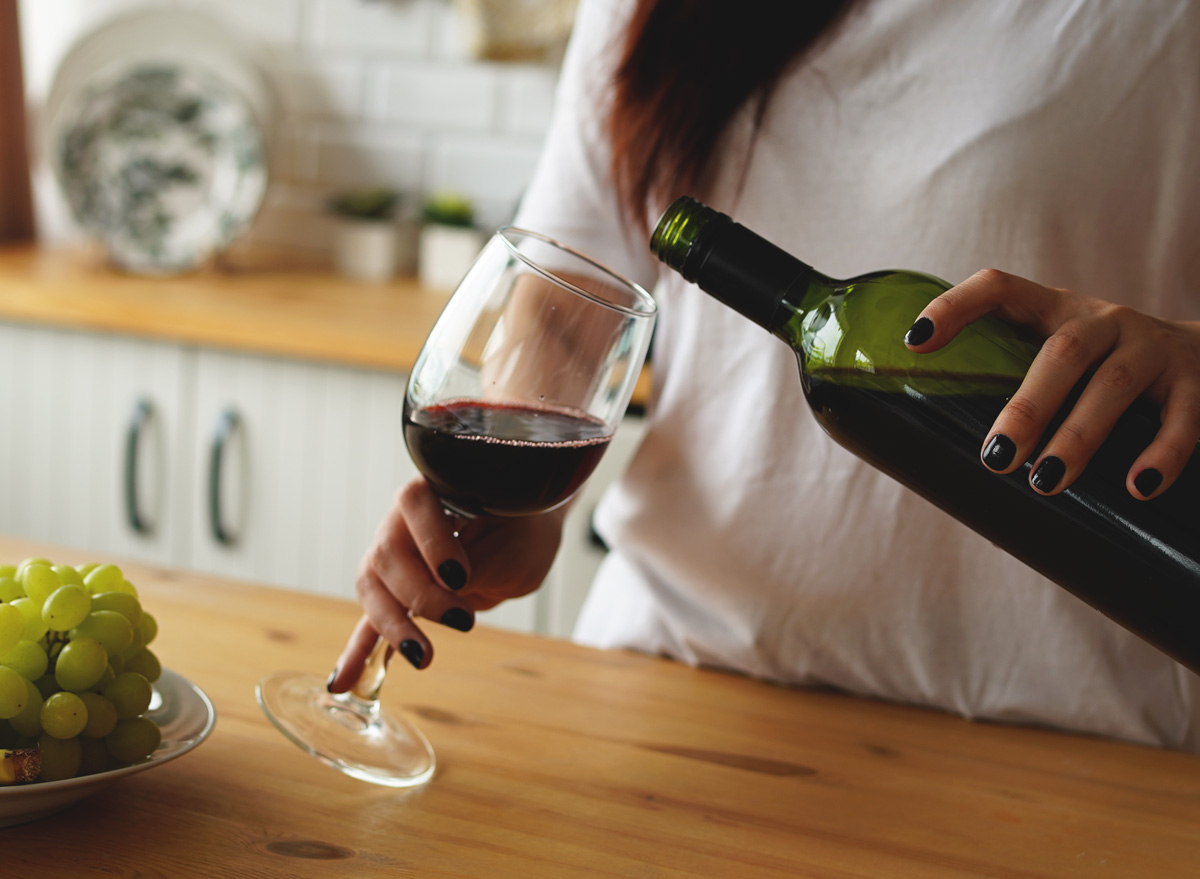
"Alcohol is a sedative and will get you to fall asleep, but it may disrupt your sleep during the night so it's not advisable as a sleep aid," says Dr. Rodriguez. There is no specific recommendation for the amount of alcohol one can consume without it having an effect on sleep quality because each person is different. If you find that you're consistently waking up in the middle of the night then it might be worth a try to nix your nightly glass of wine. Check out the additional Side Effects of Giving Up Alcohol, According to Science.
You're on medication that interferes with sleep
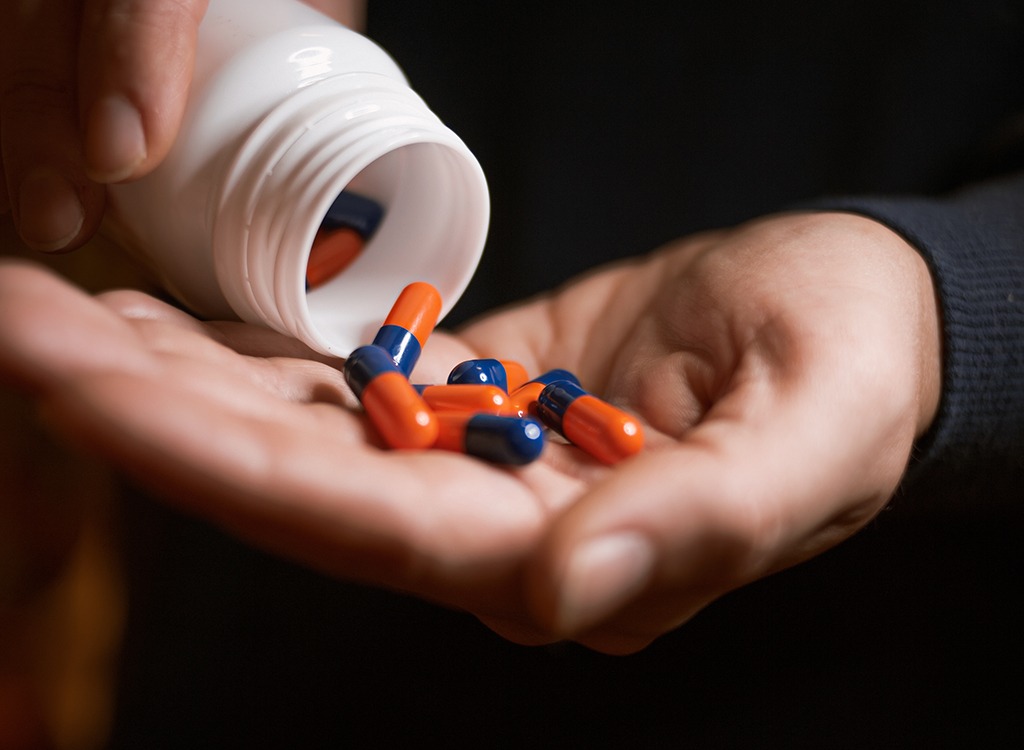
"Medication may affect sleep too, for example, if you're taking medication for high blood pressure, cholesterol, diabetes, etc. In this case, it would be wise to consult your doctor or a sleep physician to see if that has something to do with your trouble sleeping [and come up with a plan together on how to minimize the effect]," says Dr. Rodriguez. If you think medication is affecting your sleep, consider seeing a doctor and for more questions about your diet, check out these 15 Signs You Should See a Nutritionist.
